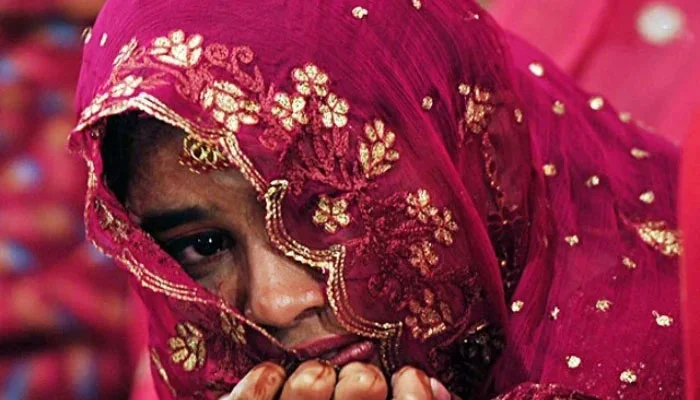By: Waqas Qamar Bhatti
Child marriage remains a significant human rights issue in Pakistan, posing a serious threat to the country’s social fabric and future development. Though this practice has been prevalent for many years, recent reports suggest a sharp increase in child marriages, raising alarms across various sectors of society.
According to a UNICEF report, nearly 19 million women in Pakistan were married as children, a statistic that highlights the gravity of the situation. Pakistan now ranks sixth globally in countries with the highest number of child brides. One in six girls in the country is married before reaching adulthood, a phenomenon that deprives them of education, restricts their social and economic opportunities, and perpetuates cycles of poverty and illiteracy.
When a girl is forced into marriage at a young age, she is denied the chance to pursue education, often trapping her in a life of economic hardship and limited personal growth. This cycle not only affects individual lives but also hinders national development. Educated women play a key role in economic growth, and depriving them of this right curtails their potential to contribute to the country’s progress.
The Constitution of Pakistan, under Article 25-A, mandates free and compulsory education for all children aged 5 to 16. However, child marriages directly conflict with this provision, as girls are often pulled out of school to marry. This also runs counter to the country’s aspirations for development, as uneducated women are less likely to contribute to the labor market or society at large.
Another alarming trend is the issue of forced religious conversions, particularly affecting girls from minority communities. Although Article 20 of the Constitution guarantees religious freedom, numerous cases of forced conversions have been reported, violating this constitutional right and further marginalizing vulnerable communities.
Despite the presence of laws prohibiting child marriage and forced conversions, enforcement remains a significant challenge. Experts have called for more rigorous implementation of these laws, emphasizing the need for the police and local administrations to act decisively. Regular performance reports submitted to Parliament could serve as a tool for accountability, outlining the number of cases reported,7 actions taken, and convictions secured.
The consequences of child marriage extend beyond social and economic barriers, as young brides often face serious health risks. The World Health Organization (WHO) reports that girls married before adulthood are at a higher risk of complications during pregnancy and childbirth. Many suffer from malnutrition, anemia, and infections, all of which pose serious threats to their health. The psychological toll is equally damaging, as young brides are frequently subjected to stress and trauma, leaving them ill-prepared for the responsibilities of marriage and motherhood.
Given these realities, activists and experts are calling for collective action. Civil society, government bodies, and the public must collaborate to protect the rights of girls and ensure the enforcement of laws that prevent child marriage.7 Special training for law enforcement agencies is also recommended to ensure that cases are handled seriously and justice is served.
Without immediate action, the rising number of child brides in Pakistan will continue to obstruct the country’s progress. Protecting girls and ensuring their right to education, health, and freedom will pave the way for a more prosperous and equitable future.


